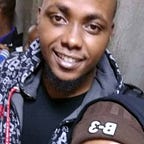MWash Project: The Journey So Far…
For the past 30 days the project has been able to have a head, body and limbs. Yes it’s Alive!!… more like it’s now working and deployed to heroku server. With the kind wisdom and guidance from the Project Coordinator, Usman Khaliq, the development phase has had its breath and was able to crawl to server with ease.
What has changed?
The visualization tool that i initially selected to use was CartoDB. It’s a really good tool until you realize you can not update the data set unless you pay a monthly fee of $149 per month. I then immediately switched to Google Fusion Tables which has really helped a lot not only in visualization but also in the API used to modify the current data.
How are users able to use the tool?
Well it’s very simple, from the landing page the users can click the explore button where they will land on the Explore page. The page riddled with markers can easily be spanned by zoom actions and filter menus to interact with the data. The markers on the map represent the water points in Sierra Leone. A click on those markers will highlight information of the water point such as;
Water Point ID: It’s a unique number generated to give the physical water point an identification number.
District: The district of the water point.
Province: The province of the water point
Water Source Mechanic: Whether the water point has a mechanic or not.
Manager: The individual or organisation that manages the water point.
Chlorinated Water: Whether the water is chlorinated or not.
Water Source Quality: The sanitary condition of the water point.
The bottom right button allows for the community to update the condition of the water point, by updating only a few attributes of the entire data set. Such as Water Source Mechanic, Manager, condition of the Chlorinated Water and Water Source Quality.
Users are also provided with an option to subscribe to SMS alerts about the water points around their area or a specific water point. A search option will also be included to enhance the user interaction with the application.
The project owners and managers are offered a dashboard after authentication to monitor the number of subscribers, the number of updates offered by the community and and a form to add new water points as well as add modifying details to the current water points.
The flexibility of the system can easily be adapted of any other project apart from highlighting water points. The application can as well expand and accommodate other data samples related to the water points in order to attract stakeholders and investors that can support the application.
What are the next steps?
The key focus of the of the solution is to reach the rural poor and most marginalized people with information about safe water and toilets close to home. This will involve a cost effective SMS/USSD solution that can easily be accessible from any mobile device connected to a GSM network. Unlike Kenya that has a SMS Gateway providers such as Africa’s Talking, I will have to explore the in and outs of Twilio that has set its Voice, Video and Messaging services across the globe.
The d|Bootcamp in Sierra Leone was based on a Code for Africa model first pioneered in Kenya in 2012 that has since been adopted across the world, with 32 bootcamps hosted in 27 countries. The Freetown event follows Code for Africa’s earlier pioneering work in Sierra Leone, where it partnered with the World Bank to help kickstart data scraperthons during a 6-week Open Data Festival 2016 in March 2016. You can read about the scraperthons here.
Code for Africa (CfAfrica) is the continent’s largest independent open data and civic technology initiative. We seek to build digital democracies that give citizens timely and unfettered access to actionable information that empowers them to make informed decisions and that strengthens civic engagement for improved public governance and accountability.
CfAfrica operates as a federation of autonomous country-based digital innovation organisations that support ‘citizen labs’ in nine countries and major projects in a further 15 countries. There are CfAfrica affiliate labs in Cameroon, Ethiopia, Ghana, Kenya, Nigeria, Sierra Leone, South Africa, Tanzania, and Uganda.
CfAfrica runs Africa’s OpenGov Fellowships and also embeds Innovation Fellows into newsrooms and social justice organisations to help liberate data of public interest, or to build tools that help empower citizens.
In addition to fellowships and citizen labs, CfAfrica runs the $1 million per year#innovateAFRICA fund plus the $500,000/year #impactAFRICA fund and the $500,000/year Sandbox Fund which all award seed grants to civic pioneers for experiments with everything from camera drones and environmental sensors, to encryption for whistleblowers and data-driven semantic analysis tools for investigative watchdogs.
CfAfrica also curates continental resources such as the africanSPENDINGportal of budget transparency resources, the openAFRICAdata portal, the sourceAFRICA document repository, and the connectedAFRICA transparency toolkit for tracking the often hidden social networks and economic interests in politics.
CfAfrica is furthermore custodian of the continental 30,000 strong Hacks/Hackers community, and incubates the continent’s largest investigative journalism initiative, the African Network of Centers for Investigating Reporting (which spearheaded the #PanamaPapers investigations on the continent).
